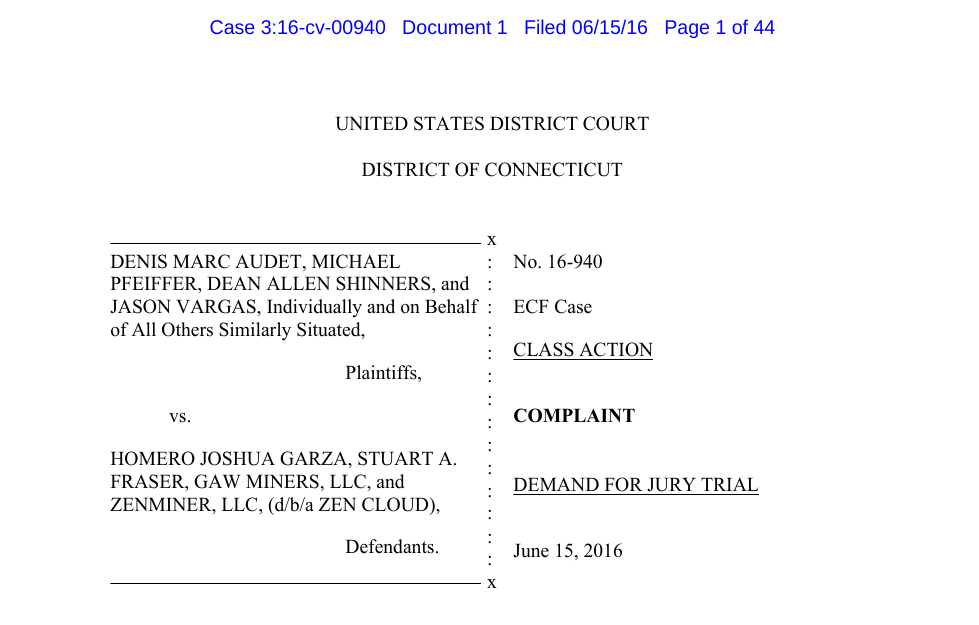A class action suit has been filed against Joshua Garza, Stuart Fraser, and GAW Miners, LLC.
Also read: Hillary Clinton Vocally Supports State Surveillance
This suit comes following the months-long legal proceedings involving the company, including a breach of contract suit from Mississippi Power Company over nearly $350,000 USD in unpaid electricity bills, and the SEC charging Garza and the company with security fraud in December of 2015.
The formal complaint filed yesterday is the culmination of over a year of collecting evidence for the case after the Plaintiffs’ announcement of intent in April of 2015. The class action represents over ten thousand customers and investors in GAW’s mining services, “Hashlet” assets, and altcoin.
Class Action Filing Against GAW LLC
The complaint alleges that Garza, Fraser, and GAW intended to defraud investors in GAW mining, ZenMiner, Paycoin, Hashlets and their other financial products and mining services from March to December 2014.
They detail GAW’s selling of mining hardware and cloud hashpower that they could not back with anything via ZenMiner (allegedly a separate service run by Garza) and Hashlets, and making over $19 million USD in revenue in the process, which included approximately $38,000 USD in “charity” Hashlets meant to be contributions to the 9/11 memorial fund.
Following their Hashlet and mining services, they rolled out Paycoin, a digital currency backed by theoretical hashpower in much the same way as their “Hashlets” were, and encouraged investors to “lock up” their Paycoins with a service that purportedly accrued interest similarly to bonds, called “HashStakers.”
The complaint describes this activity as a technologically savvy Ponzi Scheme:

“Defendants’ activities had the hallmarks of a Ponzi scheme. Because defendants sold far more computing power than they owned and dedicated to virtual currency mining (with respect to hosted mining services and Hashlets), they owed investors a return that was larger than any actual return they were making on their limited mining operations. Investors were simply paid back gradually over time, as “returns,” the money that they and others had invested in GAW Miners’ products and paid to GAW Miners for purported “maintenance” fees.”
This, along with the class action against Cryptsy, and the FCTC’s recent investigation of Bitfinex are all part of a continuing trend of increased rulings on cryptocurrency and other blockchain-based financial technologies and services, hailing the end of the “wild west” era of cryptocurrency financial products.
As these legal precedents are set, individual investors and traders have more legal recourse to pursue should they be defrauded.
Questions or Comments? Be sure to leave them below!
Image: Complaint [Source]









